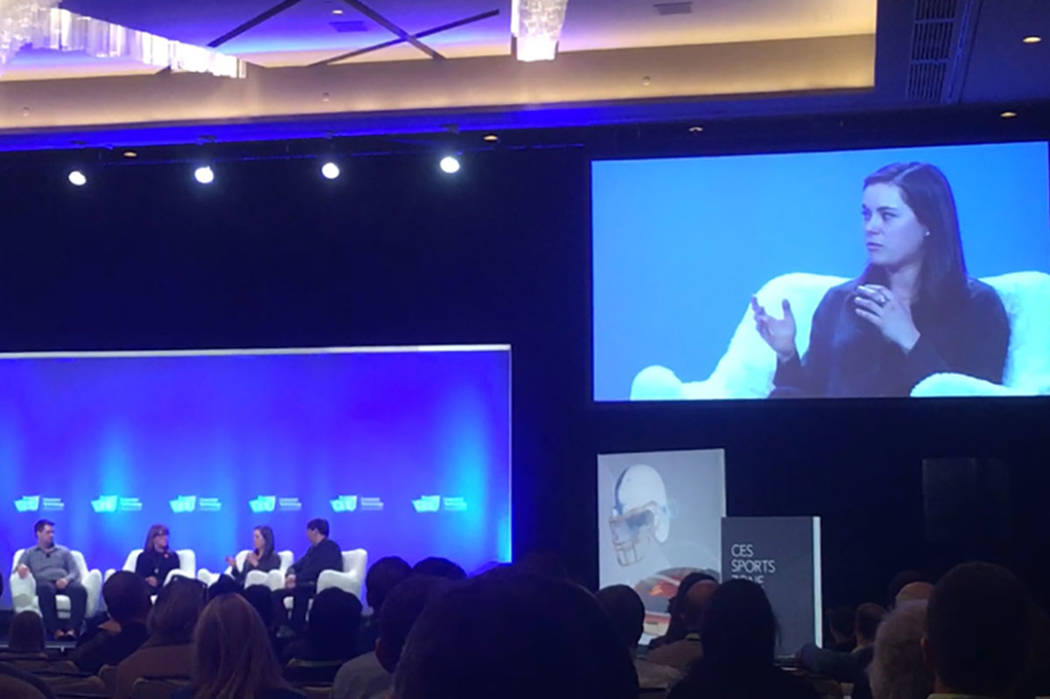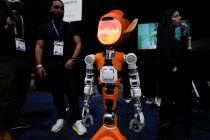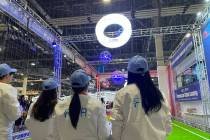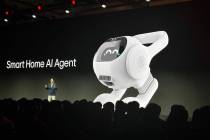CES 2019: Education crucial to sports tech advances, experts say — VIDEO
When Colette Lucas-Conwell, the first woman invited to train as a coxswain for the USRowing men’s national team, saw new heart-rate monitors being used in training sessions a few months ago, she had two questions:
Why do we need this? And how is it going to help us?
Her questions spoke to a larger topic at the CES Sports Zone and a pressing issue for professional and amateur athletes. As more technology designed to track and improve performance becomes available, how can developers help consumers get the most out of it?
“What’s interesting now is the education process for parents, teenagers,” said Marilou McFarlane, president of the GPS player tracking company STATSports. “They do want to train like the Olympians train. Now we need to educate them on how this technology works.”
McFarlane said she thinks new advances in sports technology, especially as they become more available to households, will provide more objective measures of performance even at the lowest levels like youth tryouts. But the data available to players and coaches is useless without context.
That’s why STATSports primary product, the Apex Athlete Series GPS Performance tracker, doesn’t just measure how far soccer players run during a game or what their top speed was or what areas of the field they spent the most time in. The product, which costs $299.99, compares the data to that of a U.S. national team player to give the user something to strive for.
“There’s all kinds of nuances that can help you improve your game,” McFarlane said. “You can’t improve what you can’t track.”
Steven Webster, CEO and founder of the rowing training system asensei, also said it’s important to work with coaches so data can be used in a constructive way. It’s not enough to see through tracking software that a rower isn’t applying enough force with their stroke. There has to be a way to change that.
“The coaches have to say now that we’ve seen this, how are we going to coach it into or out of the team?” Webster said. “What are the drills are we going to use?”
That’s why asensei, a free app that connects to Concept2 rowing machines, offers real-time instructions during workouts as to how rowers can improve their stroke. It can help amateurs or those training for the Olympics, like Lucas-Conwell.
And as she gets ready to try to earn a ticket to Tokyo in 2020, Lucas-Conwell is working with advanced sensors that tell her how much force her teammates are applying on each stroke and how in sync they are with one another. The data isn’t the easiest to interpret, but it’s important that she understands it to get the most out of her boat.
“There’s so much data that you get out of it that you kind of need someone who’s an expert to interpret it for you,” Lucas-Conwell said. “I think that’s definitely something that we are very cognizant of when we’re using new tools, is how is this actually going to make us faster?”
Contact Ben Gotz at bgotz@reviewjournal.com. Follow @BenSGotz on Twitter.























